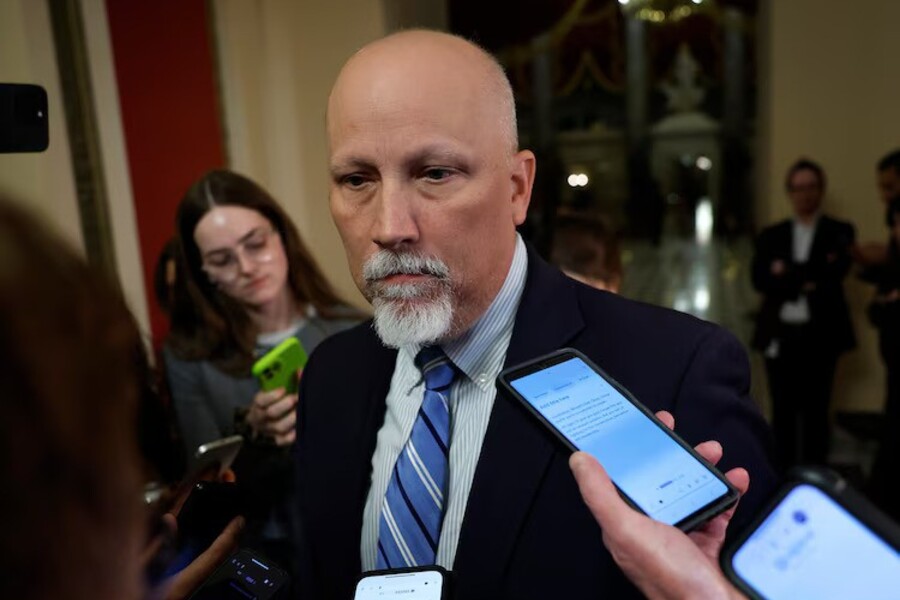A sweeping legislative proposal by House Republicans could reshape access to Medicaid for millions of Americans, introducing new work requirements and cost-cutting measures aimed at reducing federal spending by $880 billion over the next decade.
Unveiled on Sunday, the legislation would require many of the 71 million Medicaid recipients to prove they are working, volunteering, or enrolled in school to maintain their health coverage. The move is part of a broader Republican strategy to fund President Donald Trump’s renewed tax cut package, which seeks to extend the 2017 tax breaks and introduce new measures, including eliminating taxes on tips.
What’s in the Bill?
At the heart of the proposed legislation is a new “community engagement requirement.” Under this rule, Medicaid enrollees between the ages of 19 and 55 — excluding those with disabilities — must complete at least 80 hours per month of employment, education, or volunteer service. Beneficiaries would also need to verify their activity twice annually to maintain their eligibility.
In addition, the bill proposes:
- Stricter income verification for those enrolled under the Affordable Care Act (ACA).
- Out-of-pocket copays (up to $35 per visit) for Medicaid recipients earning more than 100% of the federal poverty level — roughly $32,000 for a family of four — with exceptions for emergency room visits, prenatal care, pediatric visits, and primary care.
- Asset restrictions disqualify applicants who own a home valued at over $1 million.
- Penalties for states like California and New York that offer Medicaid access to undocumented immigrants, with a 10% reduction in federal matching funds for such programs.
- Stricter legal presence verification for ACA applicants, requiring proof of lawful status.
If approved, the bill’s provisions would take effect starting January 1, 2029.
Why Target Medicaid?
Republican lawmakers argue that Medicaid — the joint federal-state program serving low- and middle-income Americans — is vulnerable to financial misuse and ballooning costs. House Speaker Mike Johnson (R-LA) has framed the changes as a move to protect the program’s long-term viability.
“Medicaid is hugely problematic because it has a lot of fraud, waste, and abuse,” Johnson said in February. “Rooting out waste preserves the programs so it is available for those who desperately need it.”
Republicans have pledged not to touch Medicare, which serves Americans over 65. As a result, Medicaid has become a focal point for budget reduction proposals — a stance that has triggered strong opposition from Democrats and some centrist Republicans.
Backlash from Democrats and Experts
Democrats and health policy experts have sharply criticized the legislation, warning it could deprive millions of vulnerable Americans of critical health care coverage.
“Nowhere in the bill are they cutting ‘waste, fraud, and abuse’ — they’re cutting people’s health care and using that money to give tax breaks to billionaires,” said Rep. Frank Pallone (D-NJ), the top Democrat on the Energy and Commerce Committee.
Analysis from the Urban Institute in April 2025 suggests the proposal could result in the loss of coverage for as many as 5.2 million Medicaid recipients between the ages of 19 and 55.
Opponents also note that similar policies have failed to produce promised employment gains in the past. A 2020 Harvard T.H. Chan School of Public Health study on Arkansas’s now-defunct work requirement found that while 18,000 people lost coverage, there was no evidence of increased workforce participation. Over 60% of those affected delayed necessary medications due to cost, and more than half postponed seeking medical care altogether.
Laura Harker, senior policy analyst at the Center on Budget and Public Policy, called such requirements “the worst sort of red tape — blocking health coverage for working people, people with serious health conditions, and people with disabilities.”
Georgia and Arkansas: Case Studies in Red Tape
Only Georgia currently enforces a work requirement through its Pathways to Coverage Medicaid expansion program. However, enrollment has lagged behind expectations, partly due to complicated eligibility verification and technical problems. Arkansas, the first state to implement a Medicaid work rule, abandoned it in 2019 following a court ruling.
Despite Republican claims that work requirements will promote employment and reduce dependency, existing research suggests otherwise. According to a KFF (Kaiser Family Foundation) report, in 2023, about 92% of non-disabled adults under 65 receiving Medicaid were already working, attending school, or caring for family members. The remaining 8% were either retired, actively seeking employment, or had other constraints.
GOP Divisions and Legislative Uncertainty
The bill faces internal resistance from more than a dozen House Republicans who have expressed concern over potential harm to constituents who rely on Medicaid. Their opposition could derail or significantly alter the bill as it moves through committees and floor debates.
Still, the proposal represents the latest chapter in a long-standing GOP effort to tether government benefits to work obligations, echoing previous attempts to modify food stamp (SNAP) requirements and welfare programs.
What’s Next?
While the bill’s future is uncertain, its introduction signals renewed partisan conflict over how the federal government should allocate resources, especially when balancing tax relief with health care access. With the 2026 midterms on the horizon, the legislation could become a flashpoint in debates over the nation’s social safety net and economic priorities.
